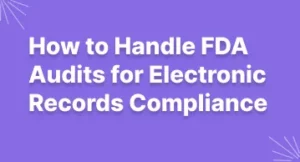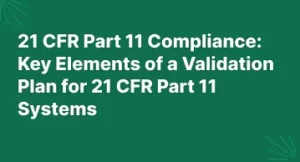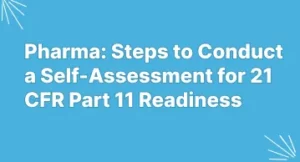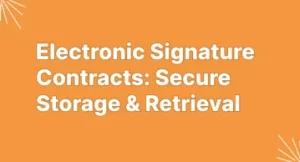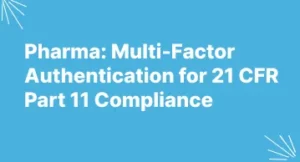Get the Basics of an NDA: 15 Questions to Ask Before Signing
The purpose of this guide is to provide readers with an understanding of Non-Disclosure Agreements (NDAs) and the 15 key questions they should ask themselves before signing one. An NDA is a legal document that aims to protect confidential information in the event of a breach or misuse. It is important to be aware of the implications of signing an NDA, as well as the true scope and limitations of the agreement.
By the end of this guide, you should have a clear idea of what an NDA is, the role it plays, and the foundational questions you should ask yourself before signing on the dotted line.
Let’s begin by breaking down the legal definition of a NDA.
Definition of NDA
Put simply, a Non-Disclosure Agreement (or NDA) is a legally binding contract between two parties, in which they agree not to share confidential or sensitive information. This document can be used to protect all kinds of information, from trade secrets to patents, inventions, and more.
NDAs also come with certain other obligations, such as that the party receiving the confidential information will not use it to their own benefit or to the detriment of the disclosing party. Thus, it is important to understand the legal components of an NDA before signing it.
The Role of a NDA
When signing a Non-Disclosure Agreement (NDA), it is important to read and understand it before committing to the agreement. An NDA is a legally-binding document that outlines the terms of a confidential exchange between two or more parties. It is important to be sure that you understand any provisions outlined in the agreement, and are aware of the consequences for failing to comply with the NDA.
As such, it is essential to read the document carefully and ask yourself questions to ensure that you know and understand what you are agreeing to. By taking the time to read the document thoroughly, you can save yourself from trouble down the road.
Put Foundational Questions in Perspective
When signing an NDA, it is important to understand the different parties involved and the documents associated with the agreement. Generally, an NDA will involve at least two parties: the disclosing party and the receiving party. The disclosing party is the one who is sharing confidential information while the receiving party is the one who receives the confidential information. The documents that are included in an NDA are typically the NDA itself and any other documents mentioned therein.
The obligations of both parties are detailed in the NDA. The disclosing party generally commits to not disclose the confidential information to any third-party without the express written consent of the receiving party. On the other hand, the receiving party agrees to keep all the confidential information disclosed by the disclosing party confidential and take reasonable steps to protect its security.
Questions to Ask Yourself Before Signing an NDA
It is important to ask yourself the right questions before signing a non-disclosure agreement (NDA). Asking the right questions can help you understand the details of the agreement and make sure it is the best decision for you. Here are 15 questions to ask yourself before signing an NDA.
- What information am I agreeing to keep confidential?
- Are there any restrictions on how I can use the confidential information?
- How long is the NDA valid for?
- What are the penalties for breaching the agreement?
- Do I have a right to receive compensation if I’m expected to pay for damages due to breach of confidentiality?
- Are there any specific rules for how I’m to protect and store the confidential information?
- Who owns the intellectual property that may be part of the agreement?
- Can I use the confidential information for any purposes not related to the agreement?
- What are my obligations under the NDA?
- What happens if I leave or am asked to leave the company?
- What happens if the other party breaches the agreement?
- Who will enforce the terms of the agreement?
- Can the agreement be changed after I sign it?
- What rights do I have to view or dispute the agreement?
- Will I be held responsible for any breach of confidentiality by another party within my organization?
Question 1: What is the purpose of the NDA?
Before signing any agreement, it is important to understand what its purpose is. Ask yourself what the Non-Disclosure Agreement is intended to cover. Is it intended to protect trade secrets, confidential information, or both? What type of information is the NDA attempting to keep confidential? It is essential to have a clear understanding of the intentions and scope of the agreement in order to properly assess and understand your rights and obligations.
When it comes to signing an NDA, it is important to ask yourself the right questions in order to fully comprehend the implications of the agreement. The second question you should ask yourself is: What are the consequences if a party breaches the agreement? It is important to understand what will happen if either or both parties do not honor the agreement or fail to fulfill their obligations. Knowing the potential repercussions can help ensure that both parties take the agreement seriously and agree to terms that are in line with their individual interests.
Question 3: What are the Confidentiality obligations?
When signing an NDA, it is crucial to understand the confidentiality obligations of both parties. This will most likely be outlined in the Agreement and should explicitly mention what type of information should remain confidential. Ask yourself whether you are allowed to share certain information with third parties, and if so, under what circumstances.
It is also important to consider who is responsible for keeping the information confidential and how long those confidentiality obligations last. Furthermore, ask yourself who can access the information and when they can access it. These details should all be present in the NDA and should be clarified before signing.
The fourth question to ask yourself before signing an NDA is whether the document is specific to the sensitive information you will be sharing. Usually, NDAs are generic documents that include general language outlining limitations and restrictions on both parties. However, if your agreement involves sharing sensitive information, such as trade secrets or confidential processes, then the NDA should be more specific to those details. It’s important to make sure the NDA is tailored to the exact information you will be sharing, so you can ensure it has the most suitable legal protections in place for both parties. Furthermore, you should review the entire NDA carefully to make sure it reflects your understanding of the agreement and does not contain any unforeseen clauses.
Questions 5 – 15
It is important to ask yourself some additional questions when considering signing an NDA. Here are some of the most important questions to answer prior to signing:
- What information is confidential and what information can be shared?
- How long does the NDA last for?
- Who will own the intellectual property covered by the NDA?
- Will any fees be charged if the NDA is breached or terminated?
- Do both parties have the same understanding of the terms?
- Are there any laws that may affect the terms of the NDA?
- Can either party make changes to the NDA without consulting the other?
- Which party is responsible for enforcing the terms of the NDA?
- What rights does each party have under the NDA?
- Can either party terminate the NDA early?
- What happens if the NDA is breached?
- Is arbitration or mediation necessary to resolve disputes?
- Who is liable in the event of a dispute?
- What damages can either party recoup if the NDA is violated?
Do Your Research
It is important to do your due diligence before signing any legal document. Researching Non-Disclosure Agreements (NDAs) and becoming familiar with their contents is an important part of the process. Understanding your own rights and obligations within an NDA will help ensure that both parties are protected and that the contract can be enforced when necessary.
It is recommended that you speak with an attorney to help you understand an NDA you are presented with. They can help you make sure you understand all the clauses and whether or not they are enforceable in the eyes of the law.
The more information you have before signing an NDA, the better. So take the time to understand what you are agreeing to.
Conclusion
Before signing any legal document, it is essential to take the time to carefully read, understand, and research the document. NDAs can be complex and have serious legal implications if not followed correctly. This guide has outlined 15 key questions to ask yourself before signing a Non-Disclosure Agreement, including considerations for both parties involved, the specifics of the document, and any obligations that come with it. Take the time to ask yourself these questions so that you can make an informed decision before signing.
NDA 101: 15 Questions to ask yourself before signing a Non-Disclosure Agreement
1. What exactly is an NDA?
A non-disclosure agreement (NDA) is a legal agreement that helps protect confidential information shared between two parties. It requires that each party that signs the contract maintains the confidentiality of the information shared.
2. When is it necessary to sign an NDA?
It is important to sign an NDA when you have access to sensitive or valuable information, such as trade secrets, intellectual property or customer data. It can also help protect proprietary information from being misused or stolen.
3. What are the consequences of breaking an NDA?
If a party who has signed an NDA fails to maintain the confidentiality of the information shared, they can be held liable for any damages caused by the breach. Depending on the terms of the NDA, the penalties or repercussions can include legal, financial and/or criminal penalties.
4. How long does an NDA usually last?
The length of a non-disclosure agreement can vary depending on the type of information being shared, the parties involved, and the purpose of the agreement. Generally, most NDAs last between 1-5 years.
5. Who should sign an NDA?
An NDA should be signed by anyone who plans to handle or have access to confidential information. This includes employees, contractors, business partners and all involved parties to the agreement.
6. What is included in an NDA?
An NDA typically covers all information that is proprietary to the company, including proprietary processes, inventions, ideas, types of technology, customer lists, marketing plans, etc.
7. Do I need an attorney to sign an NDA?
In general, it is always a good idea to have an attorney review any legal document before signing it. This is to ensure that the agreement meets the specific needs of the business, and that all parties understand their obligations.

